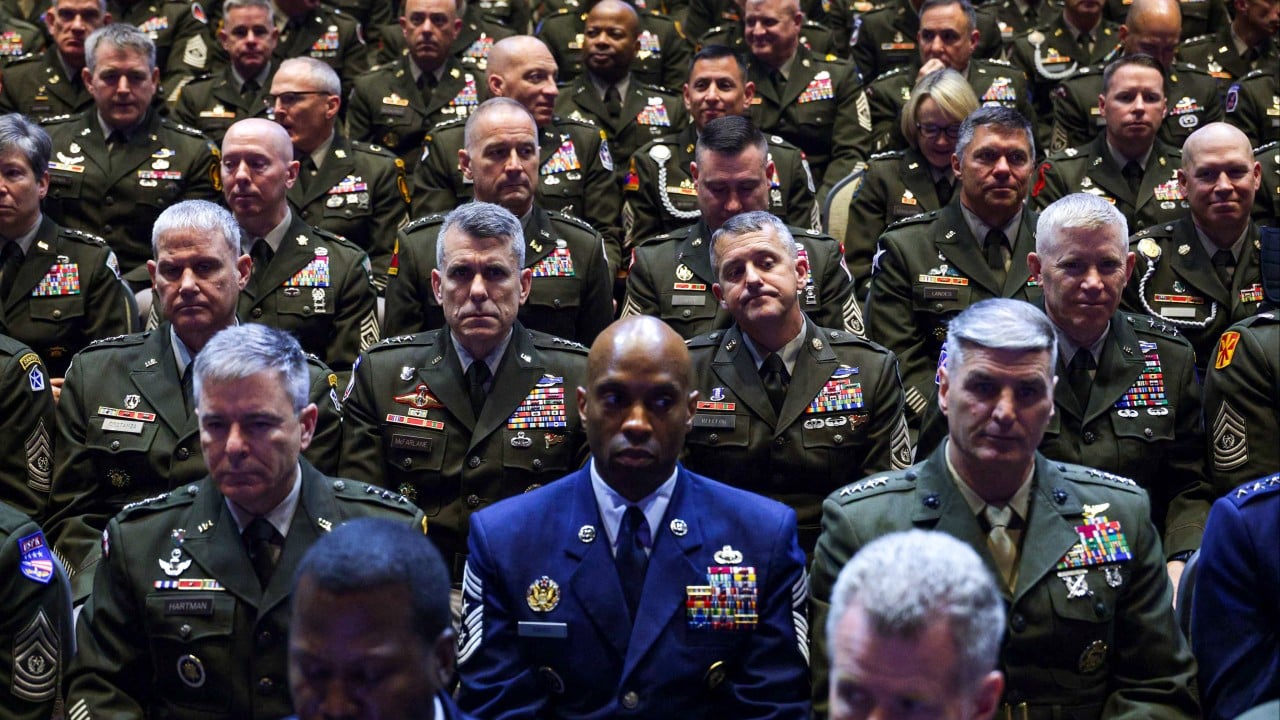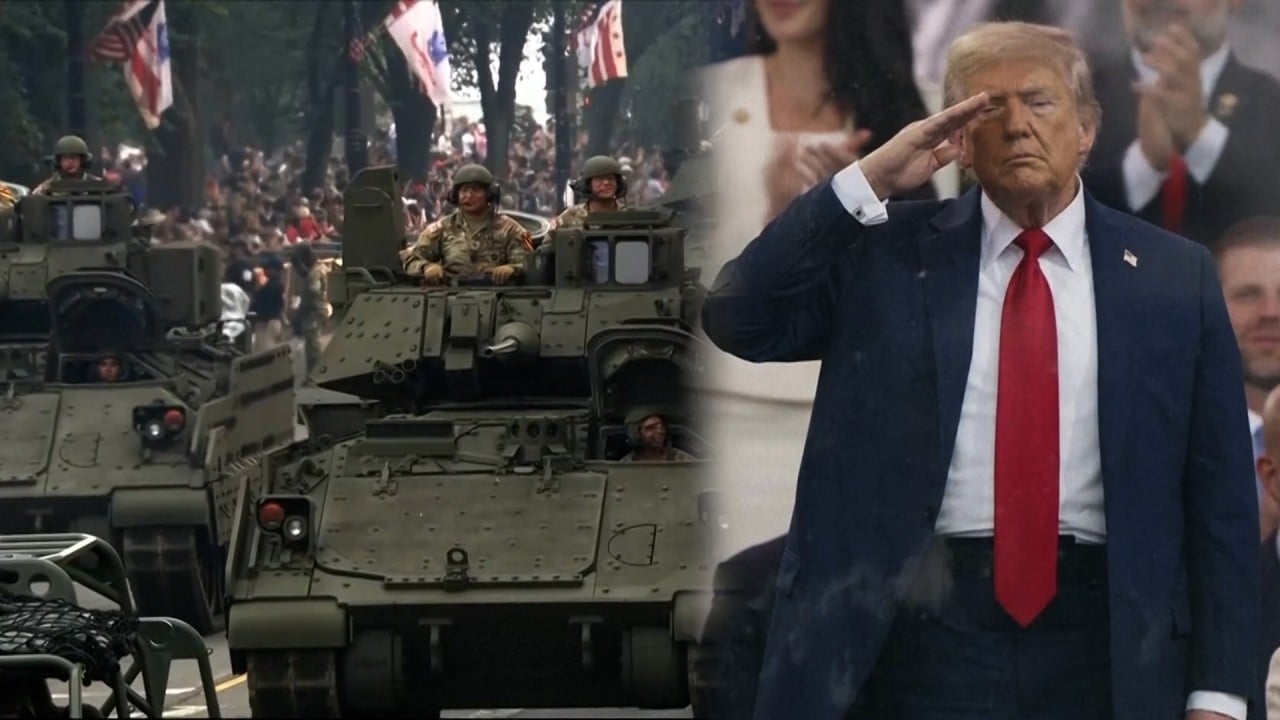A rare meeting of top US military leaders in Quantico this week sparked heated discussion on the other side of the Pacific, with Chinese media and online commenters pointing to chaos and political division.
Advertisement
Hundreds of US generals, admirals and other senior enlisted military leaders were summoned abruptly from around the world – without advance notice of the agenda – for Tuesday’s meeting led by Defence Secretary Pete Hegseth.
Hegseth, who spoke for 45 minutes, stressed the importance of the military’s appearance and physical standards, vowed to promote a more traditionally masculine image and pledged to roll back procedures aimed at increasing diversity within the forces. He told officers to resign if they did not support his agenda.
The meeting also featured an hour-long speech by US President Donald Trump, who signalled plans to reshape the military according to personal and Republican Party preferences. Trump outlined the future roles of the assembled leaders in domestic missions, and also criticised his predecessor, Joe Biden.
Chinese state media sought to portray the gathering as having political overtones and lacking strategic necessity, mocking the widely publicised nature of details such as the meeting location, timing and agenda.
Kankan News, of the state-backed Shanghai Media Group, called the US military meeting a “concentrated study session”, saying the gathering was “not a strategic planning session but a loyalty test orchestrated by Make America Great Again (Maga)”.
Advertisement
“Critical decisions can be made through secure video conferences or encrypted emails. It’s far more efficient than making the US commanders fly 14 hours just to hear someone talk about ‘being a real man’. This is not a military strategy session – it’s essentially a public loyalty pledge,” the outlet said on Tuesday.
During Trump’s speech, the president frequently strayed from military topics, covering a wide range of subjects, including the Nobel Peace Prize, peace talks between Israel and Hamas, and his enthusiasm for tariffs.


